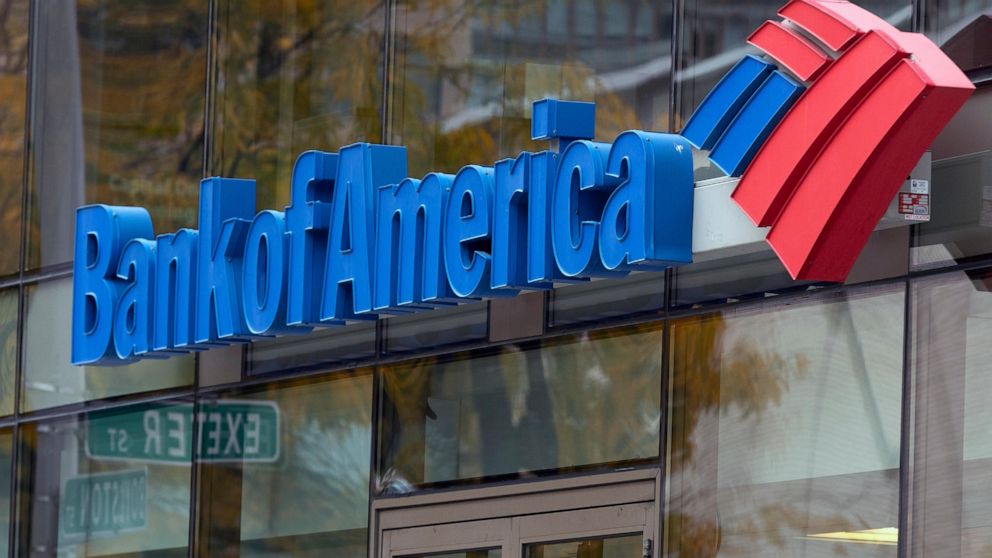Bank of America said its profits grew 15% last quarter, the latest of the big banks to do exceptionally well this earnings season as investors and consumers flock to Wall Street for safety after the failure of Silicon Valley Bank and Signature Bank
NEW YORK — Bank of America said its profits grew 15% last quarter, the latest of the big banks to do exceptionally well this earnings season as investors and consumers flock to Wall Street for safety after the failure of Silicon Valley Bank and Signature Bank.
The nation’s second-largest bank by assets posted a profit of $8.2 billion, up from $7.1 billion in the same period a year earlier. On a per-share basis, BofA earnings rose to 94 cents from 80 cents. The results beat analysts’ expectations.
Like its major competitors, BofA has benefitted from wealthy clients, businesses and other customers running to the bank as a place of safety after last month’s bank failures. The nation’s biggest banks are seen as having an implicit government backstop, due to their “too big to fail” status among the country’s financial institutions.
The Charlotte, North Carolina-based bank added customers in its business and consumer banking businesses. While deposits across the firm were down 1% from the beginning of the year, executives said that deposit outflows would have been larger had new clients hadn’t started banking with BofA in March. Banks across the industry have been broadly seeing deposits decline as inflation makes customers and businesses tap savings to pay expenses.
BofA’s results were driven by higher interest rates, which has allowed the bank to charge more for customers to borrow. Net interest income rose 25% to $14.4 billion in the quarter.
But BofA is also paying more to depositors as well, making it the latest bank to have to compete to keep deposits as customers look for other places to store their cash in higher yielding CDs, money market accounts or online savings accounts. The bank was paying on average 1.38% to customers for their deposits, up from 0.96% a year earlier.
The bank set aside roughly $930 million to cover potentially bad loans in the quarter. Many banks have been increasing their so-called loan loss reserves the last few quarters as customers start borrowing again after not doing so during the pandemic, and inflation starts stretching household budgets. But the bank said it’s not concerned about consumer health as charge-offs remain below where they were…
Click Here to Read the Full Original Article at ABC News: Business…

